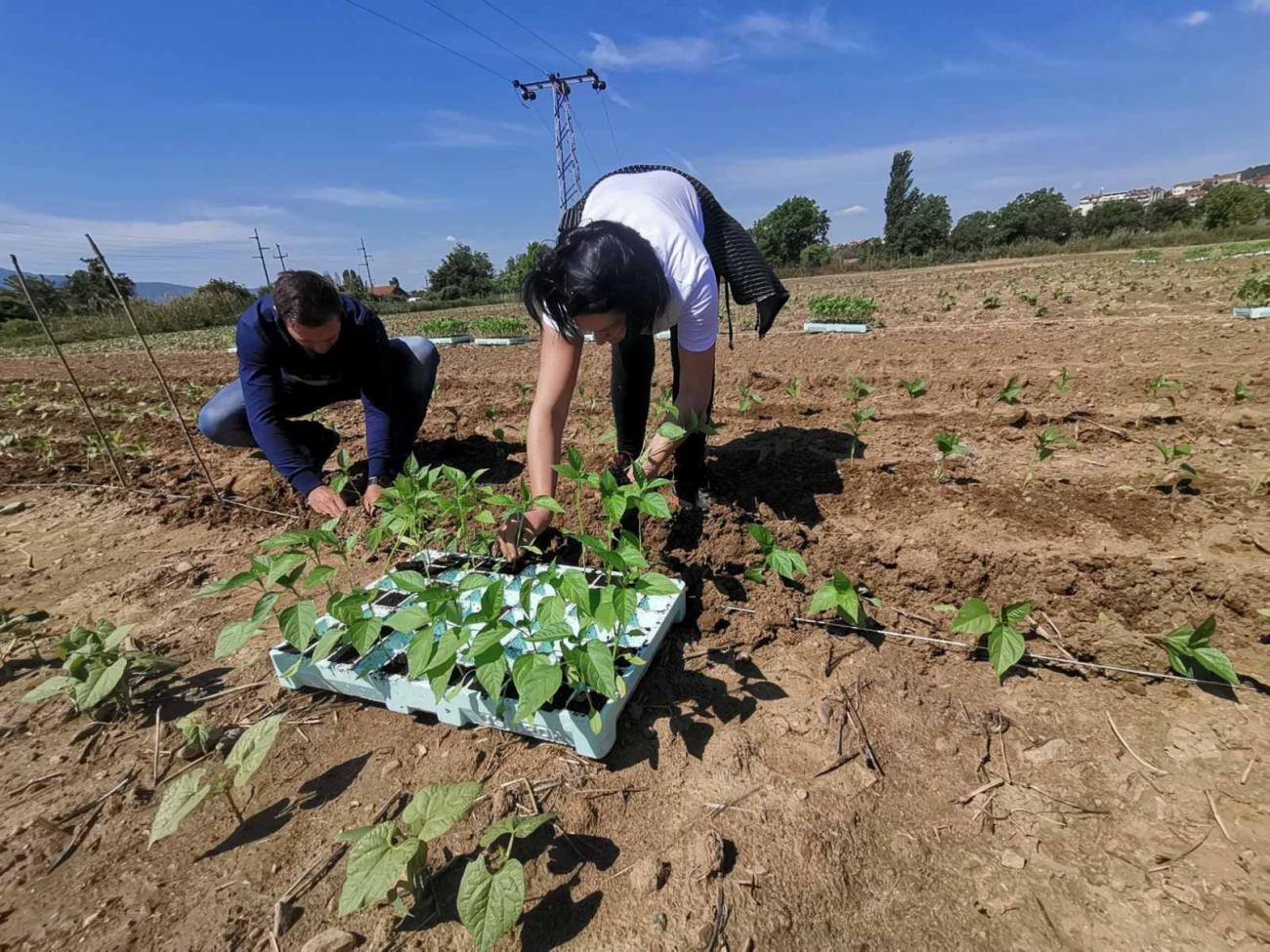27 January 2022 Skopje, North Macedonia. Climate change has a detrimental effect on Macedonian agriculture contributing to water scarcity, temperature variations, intense drought, severe fires, and flooding. At the same time, declining biodiversity causes (or triggers) reduced yields and damage to agricultural production, all of which affect the food security and livelihoods of the agriculture-dependent rural population.
The limited access to agricultural input materials, such as high-quality, climate-resilient seeds and capacities to produce, store and use them, further aggravates the agriculture production efficiency and resilience, especially that of small farmers.
To address these issues and ensure better production, FAO supports the Government of North Macedonia to enhance the country’s seed system by improving the domestic production of high-quality and climate-tolerant seeds of strategic crops by building the national capacities to ensure proper seed supply for farmers. These efforts are part of an FAO project aimed at creating enabling environments for enhanced climate resilience in agriculture in several countries in the region.
FAO helps assess the national seed system in North Macedonia through reviewing seed production, certification, distribution, quality assessment, ex-situ conservation, and plant breeding programmes in order to develop a policy paper for climate-resilient seed systems.
Additionally, in close cooperation with the Institute of Agriculture and Ss. Cyril and Methodius University in Skopje, FAO is providing assistance in establishing and maintaining demonstration sites for seed multiplication of selected crops (beans, pepper, and wheat) and also providing material inputs, such as seeds and fertilizers.
“High-quality and tolerant national varieties, sound policies related to the national seed system, and capacities to breed new and maintain local varieties are crucial in supporting the transformation of food systems in a sustainable way, enhancing food security, enhancing climate change adaptation in agriculture, and improving competitiveness,” points out Tania Santivanez, FAO agricultural officer.
The established demonstration trials in Kochani, Skopje, and Lozovo municipalities help assess climate change’s impact on agricultural production by testing several varieties of each selected crop under different climate and soil conditions, as well as the effects of applying various agro-technical measures with special attention to protection and nutrition of these crops, as important preconditions for sustainable agricultural production. As a result of this, quality seed material will be obtained and made available for distribution to interested farmers.
Managed in line with agroecology, integrated pest management, and climate-resilient practices, the multiplication trials will be the basis for on-farm trainings and field days planned for selected farmers and seed companies.
As part of the initiative, more than 35 farmers and agricultural producers, as well as representatives of seed farms, agricultural cooperatives, and the National Extension Agency, were trained on how to select, test and grow high-quality seeds for each crop in order achieve optimal yields under a changing climate.
Dialogue for better seed production
FAO also facilitates a national dialogue on climate-resilient seed systems and plant genetic resources management between different partners (including the line Ministry, academia, private companies, and farmers) to increase communication and collaboration on climate change adaptation processes in agriculture and food system through enhancing resilient seed systems and promoting quality seeds of climate-tolerant varieties.
Trajan Dimkovski, Deputy Minister for Agriculture, Forestry and Water Economy, underlined the importance of this project for strengthening the country's capacities on a climate-resilient seed system for enhancing climate adaptation in agriculture and food security. The Ministry is involved in the assessment of national policies for seed production and distribution, and in improving the seeds certification process for quality control. In this context, the Deputy Minister expects that, with FAO support, the Ministry will soon prepare and submit for Government approval a national strategic document to promote a sustainable and climate-resilient domestic seed system.
“The Institute of Agriculture is glad to cooperate with FAO in developing new research opportunities to improve seed production in order to contribute to better adaptation of agriculture to the growing negative implications caused by climate change,” said Viktor Gjamovski, Director of the Macedonian Institute of Agriculture.
In addition to the above-mentioned activities, FAO will support North Macedonia in developing a national seed portfolio and methodologies for testing new varieties for seed production, technical trainings for national professionals on seed certification and laboratory testing for quality control, as well as establishing a regional network to support regional cooperation on seed systems and climate resilience. Raising awareness at national level on the project activities for wider audience is one of the project activities.
IN PHOTOS: Flick www.flickr.com/photos/128106072@N05/albums/72177720296177412





